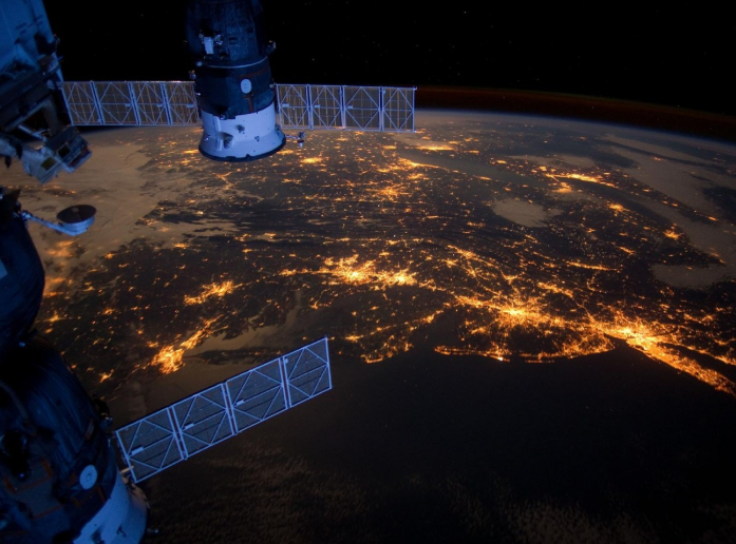
SpaceX's own CEO Elon Musk has recently said that they will be "fixing" the brightness problem of his constellation satellites that have started disrupting astronomers' view of the night sky. Stargazers have been recently having problems with the unusual brightness of Elon Musk's satellite constellations, which aim to bring better satellite internet access to the world.
Elon Musk explained that the brightness which astronomers are complaining about is due to the constellation's solar panel angles as the Starlink satellites rise to orbit altitude resulting in more sunlight being reflected than usual tricking the astronomers by looking more similar to stars.
There have already been 422 Starlink satellites launched into orbit, even including the 60 launched from the Kennedy Space Center at Cape Canaveral by NASA in Florida on Wednesday. The CEO responded to a Twitter user saying that he is currently adjusting the angles of the 400 Starlink satellites's solar panels.
The confusion with regards to the launch of these satellites
The satellites are currently orbiting 340 miles away from Earth, which is considered relatively close, making them really visible to the naked eye. All the satellites included in Starlink's next launch (launch 9) and those afterwards, will be equipped with "sunshades", according to the CEO.
Launch 9 is scheduled to take place sometime early to mid-May, picking up after the recent launch 8 that happened on Wednesday, taking place on the Falcon 9 at about 3:30pm ET. This continued launch shows that SpaceX is not allowing the pandemic to stop their plans of creating a new internet broadband constellation in a low orbit region.
Musk then said that there should be at least 800 satellites for moderate coverage and at least 400 satellites in order to provide minimal internet coverage. The firm also wants to have over 1,000 satellites in orbit later on this year and has already been approved by the FCC itself to launch about 12,000 in total.
Read also: Iran Launches First Military Satellite into Space: Could this Point to Missile Development?
The problems with this constellation
The European Southern Observatory or ESO has pointed out that this satellite mega-constellation will "severely" affect about 30% to 50% of the observations that were taken by the Rubin Observatory which is currently under construction in Chile.
Certain experts and sky observers have already voiced out their concerns about the satellites disrupting the skies through the light it produces which then out-glare the stars, making them much more difficult to spot.
A certain professor at the UCLA's Institute of the Environment and Sustainability, Travis Longcore, stated that Starlink is actually a "crime against humanity" and that it robs the people of the skies of their ancestors from every corner of the Earth.
Starlink is a crime against humanity; it robs us of the skies of our ancestors to every corner of the earth. https://t.co/WfIcVZHS0e — Travis Longcore (@travislongcore) March 5, 2020
There were also positive responses received highlighting that SpaceX's move is important to provide a network of global internet connectivity once the entire deployment has been completed. A particular Tweet has stated that Starlink currently has a huge potential to change the entire world and open up many opportunities for those who are currently experiencing economical disadvantages caused by the lack of reliable connection or the non-existence of it.









